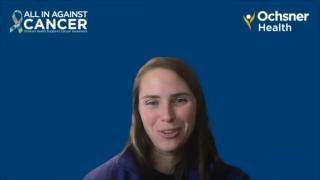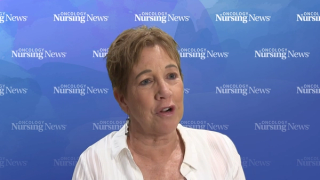
Breast Cancer
Latest News
Latest Videos

More News
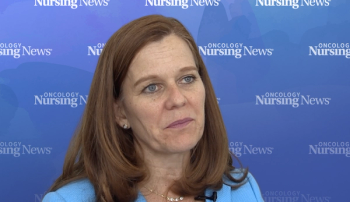
Patients with breast cancer who are of childbearing age may face issues that are accentuated by their age, an expert explained.

A nurse practitioner discussed considerations for managing aromatase inhibitor-related joint pain in patients with breast cancer.
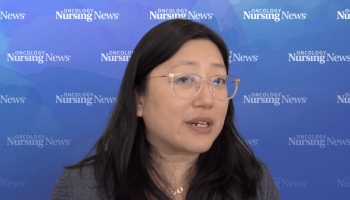
Oncology nurses should inform patients about adverse events and the signs of interstitial lung disease before treating their breast cancer with T-DXd.

Neoadjuvant immune checkpoint inhibitors plus chemotherapy also improved efficacy outcomes in PD-L1-positive/ERBB2-negative tumors.
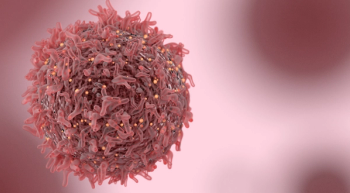
Guiding treatment via response predictive subtype could be beneficial for identifying patients with high-risk breast cancer who may respond to Dato-DXd plus durvalumab.
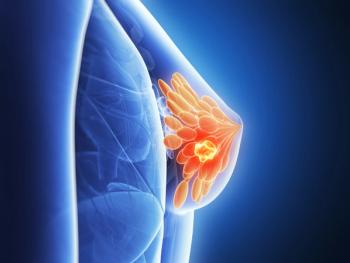
During a Community Case Forum series, breast cancer experts discussed the importance of testing for ESR1 mutations, in particular with the use of elacestrant, in HR-positive, HER2-negative metastatic breast cancer.

Trastuzumab deruxtecan improved time to deterioration for pain and other categories, in patients with HER2 low/ultralow breast cancer.

Breastfeeding is feasible for patients with hormone receptor–positive breast cancer who are undergoing a break of endocrine therapy.

The Food and Drug Administration approved ribociclib plus an aromatase inhibitor for hormone receptor (HR)–positive, HER2-negative stage II and III early breast cancer that has a high risk of recurrence.

For patients with early breast cancer, hypofractionated radiation was noninferior to normofractionated radiation regarding lymphedema risk.

Patients with early-stage triple-negative breast cancer tended to have improved survival with neoadjuvant pembrolizumab plus chemo followed by adjuvant pembrolizumab.

DESTINY-Breast12 results showed that T-DXd led to overall and intracranial activity in patients with HER2-positive metastatic breast cancer.

Adjuvant trastuzumab reveals associations with improved disease-free survival in 1-year vs 9-week administration of the drug in patients with ERBB2-positive breast cancer.

A gene assay was predictive of response to extended letrozole therapy, identifying a subset of patients with low-risk breast cancer with improved outcomes.

Compared with available literature, the rates of medication-related osteonecrosis of the jaw were higher in patients with breast cancer and bone metastases treated with antiresorptive therapy.

Increased use of consultations, breast MRIs, genetic counseling, and other testing in high-risk patients were a direct result from nurse-led high risk referral protocols.

A learning approach integrating time series and static data may improve understanding of breast cancer outcomes.

Genetic testing offers potential benefits after a cancer diagnosis by potentially reducing the risk for cancer in families with hereditary cancer syndromes and managing treatment.

An expert discusses recent advancements in breast cancer treatment, focusing on the addition of CDK4/6 inhibitors for high-risk ER-positive, HER2-negative breast cancer.

Fast track designation has been granted from the FDA to HP518 to treat androgen receptor–positive triple-negative breast cancer.

Crofelemer missed the diarrhea endpoint in a study assessing prophylaxis in adult patients with solid tumors receiving targeted therapy.

Findings from this study also demonstrate statistically meaningful improvements in breast cancer–specific quality of life and endocrine symptoms with acupuncture.

An expert explores the complexities of immunotherapy during pregnancy, highlighting risks to the fetus and the crucial role of oncology nurses in patient education and management.

This recommendation is an update to the 2020 ASCO guideline on optimal adjuvant chemotherapy and targeted therapy for the treatment of breast cancer.

With several options available for the second-line treatment of HR-positive, HER2-negative mBC, an expert emphasized the importance of tailoring treatment for every patient.







